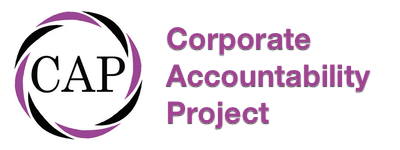Last night (Thursday 12 May 2016), London hosted the Anti-Corruption Summit. Attended by world leaders, business people, professionals, interest groups and other organisations, the summit is the first of its kind. With three main objectives, the summit was designed to establish a foundation for a coordinated global response to corruption. It was a chance to gain greater insight from participants into the key issues facing business, organisations, communities and governments in tackling and preventing corruption.
Prime Minister, David Cameron, emphasised ‘we need to do more in terms of coordination…the whole theme of this summit is to raise the bar [in tackling corruption].’ The following outlines the key points emerging from discussion at the summit:
The need for better information
Mr Cameron also emphasised the importance of information and how information might be shared and/or combined. ‘[Y]ou can have a brilliant police force and financial experts, but it is only when you put the two together that you get what you need.’ In order to coordinate a global response, information must be shared between countries, there needs to be greater protection afforded to whistleblowers, and greater public awareness.
Ending impunity
The Panama Papers and other scandals have shown just how much corrupt individuals and corporations may get away with. French magistrate, and well-known anti-corruption advocate, Eva Joly, raised the difficulties in prosecuting corruption. ‘Corruption occurs in a closed room…we need to follow the money trails…we need to prosecute.’ She appealed for strong political commitment from those attending the summit. Similarly, the Attorney-General of Kenya petitioned for a widening of the net, stating that both nationally and internationally ‘we place too much faith in criminal law…we need to impose civil penalties.’ From a legal perspective, the threshold for establishing corrupt behaviour needs to be lowered to encompass civil, as well as criminal wrongs.
Outcome
Participants of the summit signed a pledge ‘to expose corruption wherever it is found, to pursue and punish those who perpetrate, facilitate or are complicit in it, to support communities who have suffered from it, and to ensure it does not fester in our government institutions, businesses and communities.’
Six states, the UK, Afghanistan, France, Kenya, Nigeria and the Netherlands have agreed to establish public registers – sharing information as to the true owners of companies. Six other states, including Australia, have said they will consider establishing similar registers. A total of 29 states have said they will establish similar registers, for sharing between governments, but not make them available for public viewing. Unfortunately, the US did not join this list.
The summit, at the very least, is a step in the right direction and will form a platform from which to improve international coordination.
READ MORE:
http://www.theguardian.com/politics/live/2016/may/12/david-cameron-london-anti-corruption-summit-live
https://www.gov.uk/government/topical-events/anti-corruption-summit-london-2016/about
http://www.economist.com/news/international/21698740-step-right-direction-what-david-camerons-anti-corruption-summit-did-and-didnt
http://www.bbc.com/news/business-36274302
http://www.independent.co.uk/news/world/politics/anti-corruption-summit-2016-nations-agree-to-increase-transparency-and-crackdown-on-money-laundering-a7026976.html
